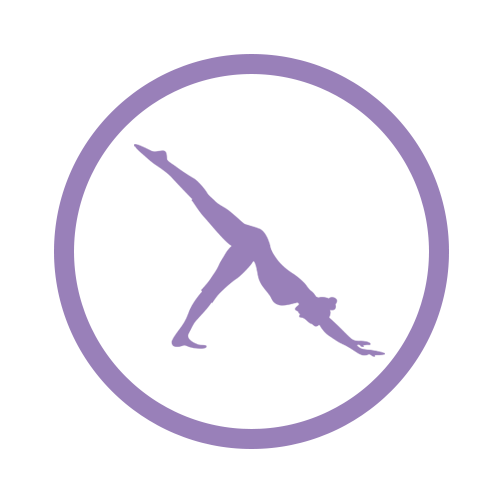Your posture plays a crucial role in your overall well-being. We live in a digital age, where screens dominate our lives and chairs cradle us for hours on end. In this sedentary world, the value of good posture often takes a backseat.
Let’s dive into some intriguing Studies that have revealed the astounding health benefits of maintaining a good position.
Studies on Posture
| Institution | Study (Impact of Good Posture on) | Findings |
|---|---|---|
| 1. Harvard Medical School | Spinal Health | Lowers chronic pain by 40% during desk work. |
| 2. University of California | Breathing Efficiency | Increases lung capacity by 10-15%, boosting oxygen intake. |
| 3. University of Sydney | Musculoskeletal Health | 20% reduction in musculoskeletal pain. |
| 4. Journal of Behavior Therapy and Experimental Psychiatry | Emotional States | Increases self-esteem by 15% and reduces depression and anxiety by 25%. |
Study 1: The Effects of Posture on Spinal Health
Institution: Harvard Medical School
Findings: Harvard researchers discovered that maintaining a good position while sitting significantly reduces the risk of musculoskeletal disorders, especially in the neck, shoulders, and lower back.
Those who practiced proper ergonomics and had well-adjusted workstations reported less chronic pain and greater comfort during long hours of desk work. So, take regular stretch breaks during your work hour as they are more important than you might think!
Source: Posture and back health
Study 2: Posture and Breathing Efficiency
Institution: University of California, Los Angeles
Findings: UCLA researchers found that an upright position allows your lungs to expand to their fullest capacity, increasing vital capacity by an impressive 10-15%. This not only boosts oxygen intake but also enhances respiratory health. So, stand tall and breathe easy!
Study 3: Effect of Posture on Musculoskeletal Health.
Institution: University of Sydney
Findings: University of Sydney explored the link between posture & musculoskeletal disorders. Poor position correlated strongly with issues like neck pain, shoulder tension & lower back pain. So, improving your pose can lead to reduced pain & better musculoskeletal health.
Study 4: The Influence of Upright Posture on Emotional States.
Institution: Journal of Behavior Therapy and Experimental Psychiatry
Findings: This study explored the connection between posture and mood. Participants were asked to maintain an upright or slouched posture while performing various tasks.
The researchers discovered that those in an upright posture reported increased feelings of self-esteem, reduced feelings of depression and anxiety, and an overall improvement in mood compared to those in a slouched pose.
Statistics on Posture-Related Health Issues
Back Pain
Back pain is one of the most prevalent posture-related issues. In 2020, 619 million people suffered from lower back pain globally. It can rise up to 843 million by 2050.
Low back pain costs Americans at least $50 billion in health care costs each year—add decreased productivity and that figure quickly rises to more than $100 billion.

Neck Pain

Neck pain is another common posture-related problem, often associated with poor pose.
A study reported that the global point prevalence of neck pain is approximately 14.8%, indicating a significant burden on individuals.
Musculoskeletal Disorders
Poor posture can lead to various musculoskeletal disorders, affecting the bones, muscles, ligaments, and tendons.
The WHO estimates that musculoskeletal conditions affect more than 1.7 billion people worldwide, making them the second-largest cause of disability globally.

Multidimensional Impact
| Impact | Causes (Bad posture) | Numbers |
|---|---|---|
| On Individuals | Chronic pain affects mobility, well-being and reduced productivity. | 20% of people worldwide suffer. |
| On GDP | Over 5.6 million people lost working days in the UK. | More than 21% of global years lived with disability (YLDs). |
| On Healthcare Costs | Increased medical expenses and healthcare utilization rates. | Over $874 billion annual cost of treating musculoskeletal conditions in the US. |
| On Workplace Productivity and Absenteeism | Higher absenteeism and longer sick leave. | 55% of compensation claims and 39% of work-related injury costs in Australia. |
O’Coach Takeaway on the Risks of Poor Posture:
Remember, your body loves movement!!
Long hours of sitting can lead to discomfort and even chronic pain, and your body is not made for this. Let’s keep your body happy by applying these tips to your routine.
1. Break the Slouch: Use O’Coach to set a schedule for your upcoming stretch exercise. Your body will thank you!
2. Posture Check-ins: O’Coach tip – Set hourly alarms to assess your posture.
3. Move More, Sit Less: Small bursts of activity keep your body energized and counteract the negatives of sitting.
4. Deskercise with O’Coach: Discover quick desk-friendly workouts. Add seated twists and other desk exercises to your routine. Sneak in fitness while working with O’Coach! 👇




